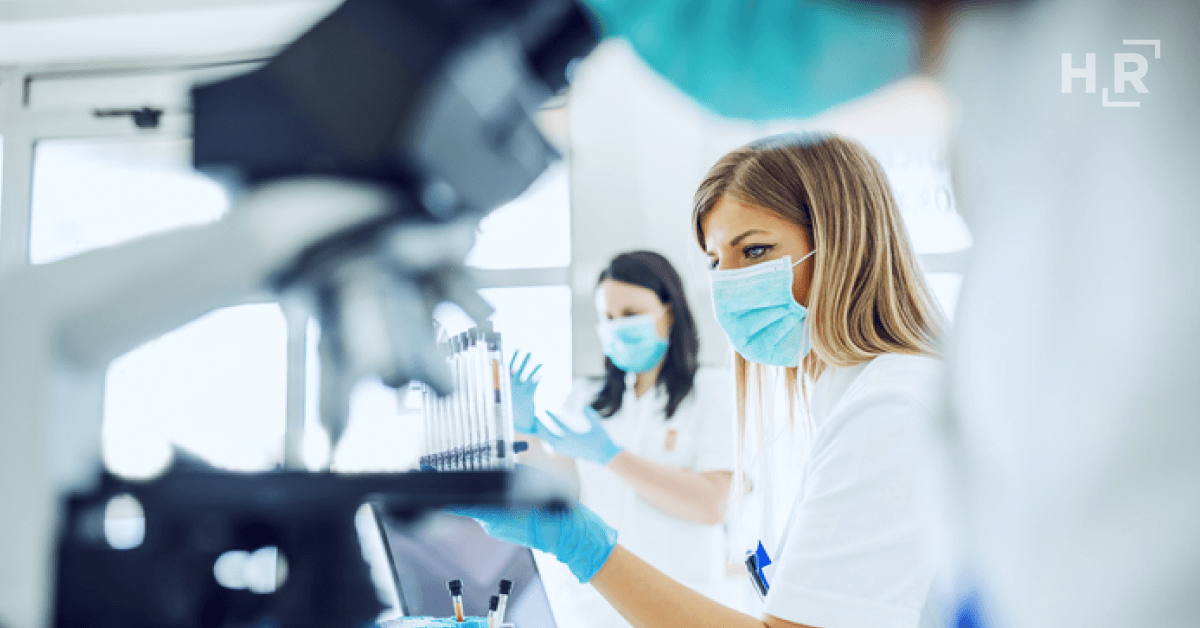Testing for COVID-19 in the Return-to-Work Employment Arena
Hear more about (EEOC) guidance on CIVOD testing as your employees come back to the office.

In a departure from original Equal Employment Opportunity Commission (EEOC) guidance, the EEOC published an update on June 17th, 2020, that prohibits employers mandating COVID-19 antibody testing for employees returning to the worksite. EEOC technical assistance Questions and Answers can be found here.
With this new EEOC stance, employers who are considering mandating testing as part of their comprehensive COVID-19 return to work policy need to depend solely on viral marker testing (at this point PCR/antigen testing). From an EEOC perspective, the only testing that is now allowed will be viral marker tests. However, functionally speaking, the laboratories that currently have FDA Emergency Use Authorization for viral marker testing are putting significant guardrails on who can access those tests. From the labs’ perspectives, unless an employer is defined as a company who is part of their State’s essential critical infrastructure workforce, testing for viral markers is really limited to workers who are symptomatic or workers who have been exposed to the COVID-19 virus. For essential workforces, the labs will support widespread, routine viral marker testing can be done as part of that’s organization’s safety policy.
Common questions include:
Functionally, how would non-essential workforce COVID-19testing work?
In this scenario, employers can compel testing based on their policy for employees who are shown to be symptomatic. Employers can pre-establish a vendor who can perform these tests as part of a more seamless process to obtain results, or work with local providers to coordinate testing. In either case, based on policy, the employers are allowed to receive these results for these viral marker tests.
As part of your policy, I recommend that you perform as a best practice contact tracing of potential viral exposure when one of your employee tests positive for COVID-19. Further these potentially exposed employees should also be removed from duty until testing is completed.
What should I do if an employee tests positive for a viral marker?
If an employee tests positive for COVID-19, that person should not be allowed to return to the jobsite until he/she has completely cleared the infection and is no longer infective. The Center for Disease Control (CDC) provides two different mechanisms for healthcare workers to return to duty after a known COVID-19 infection that can be extrapolated to the general employment population. Those two strategies are as follows:
Symptom-based strategy - Exclude from work until at least 3 days (72 hours) have passed since recovery defined as resolution of fever without the use of fever-reducing medications and improvement in respiratory symptoms (e.g., cough, shortness of breath) AND, at least 10 days have passed since symptoms first appeared
Test-based strategy - Exclude from work until resolution of fever without the use of fever-reducing medications AND improvement in respiratory symptoms (e.g., cough, shortness of breath) AND negative results of an FDA Emergency Use Authorized COVID-19 viral marker test collected ≥24 hours apart (total of two negative specimens)
Should we consider any form of antibody testing for COVID-19?
Per the referenced EEOC position, mandatory antibody testing is prohibited at this time. As time passes there may be a change in this position since antibody testing is the way healthcare professionals determine immunity today for other viral illnesses. Since life sciences companies throughout the world are developing vaccines, I can see the EEOC’s position changing, but at this point in time, the CDC has held firm in its position that an antibody response has not been definitively shown to confer immunity. As vaccines are offered, the CDC’s position will have to change since vaccines stimulate our body’s immune cells (called lymphocytes) to respond by producing antibodies. These antibodies fight the virus and protect against further infection.
At this point, any employment antibody testing needs to be purely voluntary and cannot be used to deny facility access.
What other COVID-19 related items should I be thinking about?
A COVID-19 testing program is the proverbial “cherry on the sundae” when it comes to a return to workplace policy. Please remember to have your policy address these best practices as propagated by the CDC:
To prevent and reduce transmission among employees
Actively encourage sick employees to stay home
Consider conducting daily in-person or virtual health checks (e.g., symptom and/or temperature screening) of employees before they enter the facility
Immediately separate and send home sick employees who appear to have
symptoms upon arrival at work or who become sick during the day
Follow the CDC cleaning and disinfection recommendations and perform routine cleaning
Educate employees about steps they can take to protect themselves at work and at home
Establish policies and practices for social distancing
Provide everyone who enters your jobsite what they need to clean their hands and cover their coughs and sneezes
Minimize risk by not allowing employees to gather around each other during the workday
You can get a full list of these protective measures by accessing the link to the CDC website below:
https://www.cdc.gov/coronavirus/2019-ncov/community/guidance-business-response.html
Release Date: May 21, 2020

Dr. Todd Simo
Dr. Todd Simo currently serves as the Chief Medical Officer and Managing Director of Transportation at HireRight. He came to HireRight with a decade of experience in the medical consulting arena. Prior to HireRight, he was the Medical Director of an occupational health clinic in Virginia and owned a consulting firm providing medical director service to multiple companies located throughout the country. In that capacity, he established multiple customer specific health and drug screening services. In his current position, he oversees HireRight's medical department.